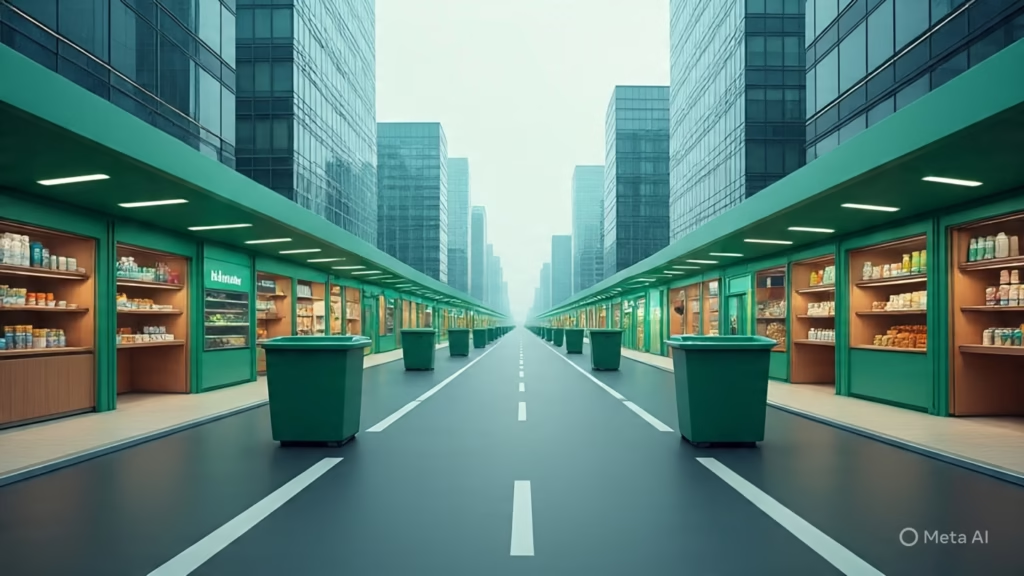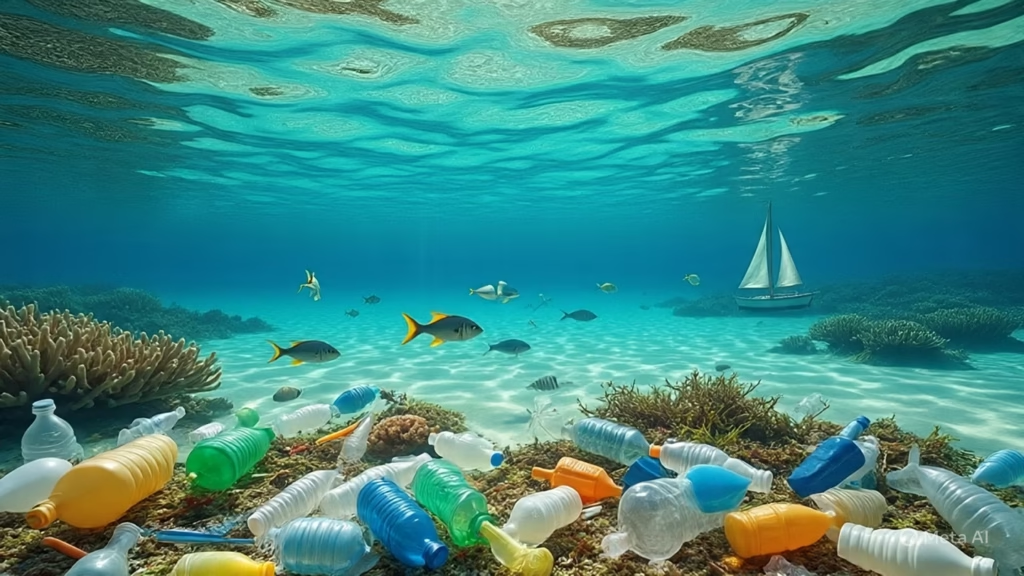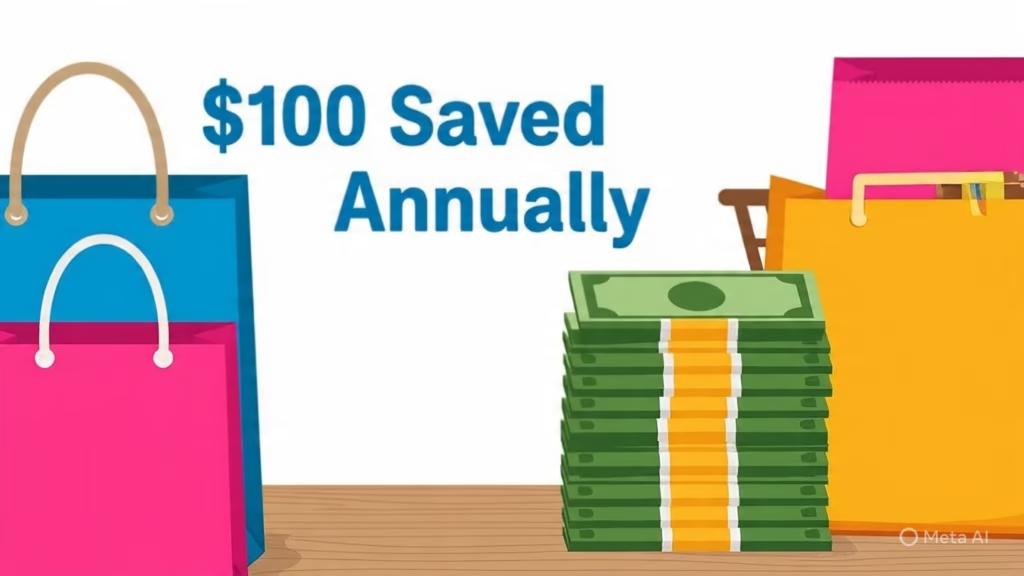Zero Waste Benefits ( Short Summary )
| # | Question | Answer Summary | Benefit/Impact | Challenges/Drawbacks |
|---|---|---|---|---|
| 1 | Is going zero waste expensive? | Initially yes, long-term no | Saves money, long-term cost-effective | Upfront investment, lifestyle changes |
| 2 | Alternatives to zero waste packaging? | Glass, paper, cloth, bioplastics | Reduces plastic waste | Availability, cost |
| 3 | Concept of zero waste? | Eliminate landfill waste, reuse & compost | Sustainability, low waste | Requires consistent effort |
| 4 | Hardest part of going zero waste? | Giving up convenience & packaged goods | Encourages mindful living | Social pressure, accessibility |
| 5 | Downside of zero waste? | Time, effort, cost, guilt | Eco-awareness, low impact | Can feel restrictive or expensive |
| 6 | How is zero waste management done? | 5Rs: Refuse, Reduce, Reuse, Recycle, Rot | Structured, full-cycle solution | Needs infrastructure & training |
| 7 | Examples of living zero waste? | Cloth bags, bulk buy, compost, reuse jars | Daily impact reduction | Requires planning |
| 8 | Money saved by reusable bags? | $50–$100/year | Financial & environmental benefit | Needs consistency |
| 9 | Is zero waste hard/impossible? | Difficult but possible | Reduces waste significantly | Accessibility issues |
| 10 | Opening zero waste store helps nation? | Yes, supports sustainability | Environmental education, supports locals | Setup cost, limited reach |
| 11 | Green paper vs plastic bags? | Paper decomposes, plastic lasts long | Paper is biodegradable | Paper uses more water/energy |
| 12 | Goal of Zero Waste Challenge? | Encourage waste-free habits for a period | Builds awareness, lifestyle change | Temporary impact unless continued |
| 13 | Conflict with veganism? | Vegan food is often plastic-wrapped | Increases awareness of both causes | Ethical conflicts (beeswax etc.) |
| 14 | Promote in India? | Campaigns, bans, composting, education | Builds eco-culture | Requires government & public support |
| 15 | Cotton vs plastic bags? | Cotton is reusable, biodegradable | Eco-friendly if reused often | High production cost, water use |
| 16 | Zero-waste gift ideas? | DIY, reusable items, experiences | Less waste, more meaning | Needs thoughtfulness |
| 17 | Reduce urban waste? | Composting, recycling, less packaging | Cleaner cities | Enforcement and awareness |
| 18 | Zero-waste house? | Compost, reuse, bulk, no disposables | Sustainable household | Transition effort |
| 19 | Importance of zero waste philosophy? | Saves resources, reduces pollution | Global sustainability | Requires mindset shift |
| 20 | What is Zero Waste Movement? | Global effort to minimize waste | Shared responsibility | Scaling it globally |
| 21 | What is zero waste? | Lifestyle eliminating waste | Reduces landfill & pollution | Needs commitment |
| 22 | Household waste reduction practices? | Buy bulk, compost, reuse | Daily eco-actions | Time & planning required |
| 23 | Zero waste city in India? | Yes, cities like Indore show potential | Model for others | Requires strong governance |
| 24 | Green packaging alternatives? | Mushroom, leaf, bioplastics | Eco-safe industry | Cost & availability |
| 25 | Importance of Zero Waste Mgmt? | Public health, pollution control | Circular economy | Needs infrastructure |
| 26 | Why not use paper over plastic? | Cost, strength, resources | Biodegradable paper | Limited reuse & costlier |
| 27 | How to utilise waste? | Compost, recycle, DIY reuse | Turns waste into resource | Segregation required |
| 28 | Where are plastic bags? | Banned or replaced in many countries | Policy success | Not consistent globally |
| 29 | Paper vs plastic bags? | Paper if reused wins | Biodegradable | Energy-heavy production |
| 30 | Garbage bag duration? | 2–3 days ideal | Hygiene, odor-free | Daily effort |
| 31 | Features of zero waste mgmt? | Source reduction, reuse, segregation | Comprehensive waste plan | Needs awareness |
| 32 | Eco-friendly trash bag alternatives? | Compostable bags, no liner, newspaper | Low-impact waste disposal | Access to compostables |
| 33 | Pay for plastic bags? | Discourage usage | Reduces plastic use | Public resistance |
| 34 | What if plastic use continues? | Pollution, health issues | Highlights urgency | Requires mass action |
| 35 | What is zero-waste cooking? | Full usage of food, composting | Food waste reduction | Planning meals needed |
| 36 | Benefits of plastic bags? | Cheap, waterproof | Convenience | Severe environmental cost |
Detailed: “FAQS Zero Waste Benefits”
1. Is going to zero waste expensive?
Zero Waste Benefits,
✅ Initially, yes—buying reusable items like metal straws or glass containers can cost more. But in the long term, it saves money as you reduce repeat purchases. You also buy fewer packaged goods and focus on DIY solutions. The real cost is the lifestyle shift, not money.
2. What are the alternatives for zero waste packaging?
Zero Waste Benefits,
✅ Compostable materials, paper wraps, cloth pouches, glass jars, recycled cardboard, beeswax wraps, and reusable containers are top options. Businesses also use cornstarch-based bioplastics and mushroom packaging.
3. What is the concept of zero waste, and how can I achieve it?
Zero Waste Benefits,
✅Zero Waste Benefits to eliminate landfill-bound trash by reusing, recycling, and reducing. Start by refusing single-use plastics, buying in bulk, composting, and carrying reusables. It’s a shift from consumerism to sustainability.
4. What was the hardest part about going zero waste?
✅ The toughest part is breaking convenience habits—like giving up plastic-packed snacks or forgetting your reusable bags. Social pressure and lack of bulk or refill stores also make it harder.
5. What’s the downside of zero waste?
✅ It requires time, effort, and often access to bulk stores or sustainable brands. It can also lead to guilt if perfection isn’t achieved, and some Zero Waste Benefits (products) are expensive upfront.
6. How is zero waste management done?
✅ It involves reducing waste at the source, reusing materials, recycling, composting organic matter, and ensuring that nothing goes to the landfill or incinerator. It emphasizes the “5 Rs”: Refuse, Reduce, Reuse, Recycle, Rot.
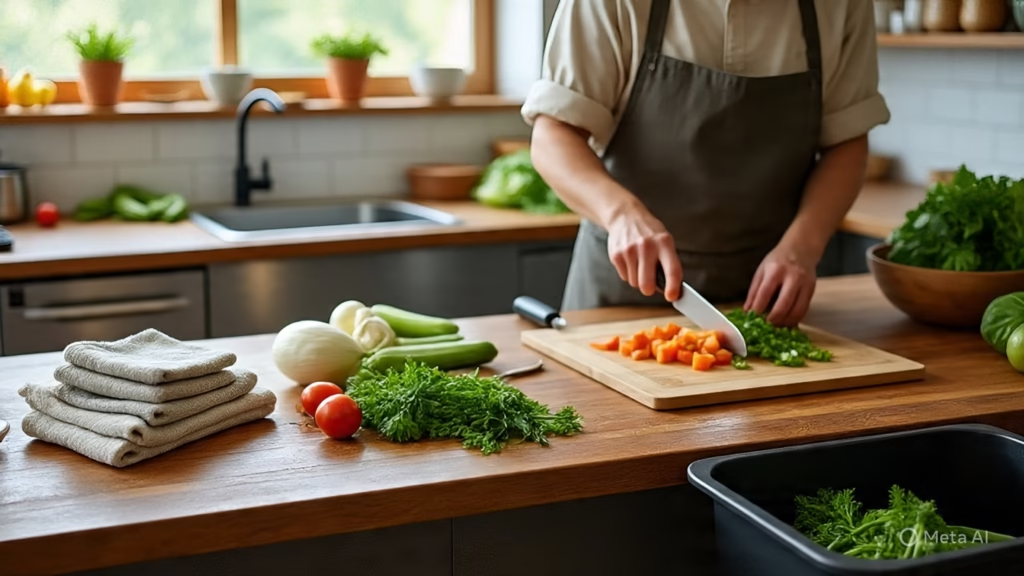
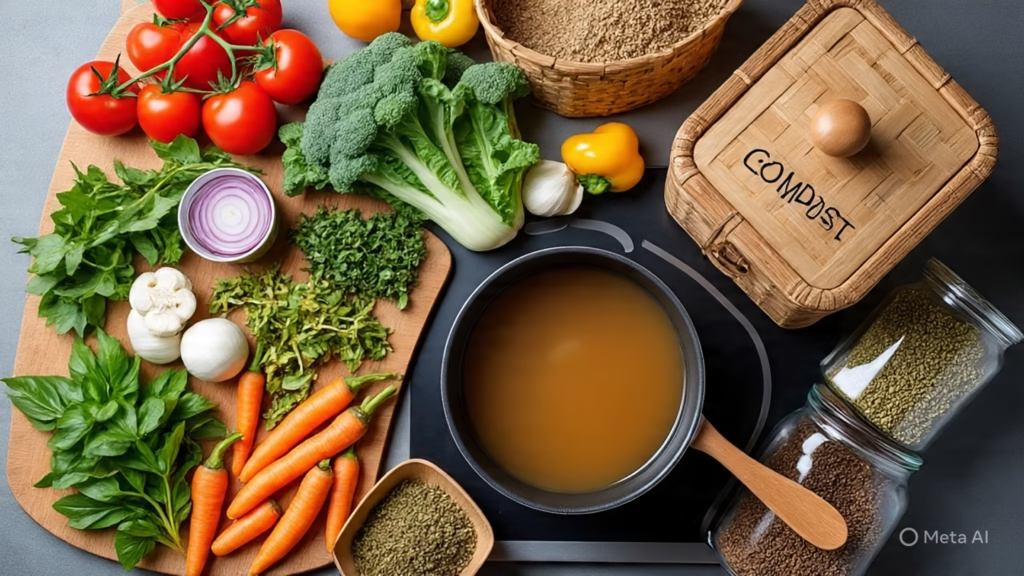
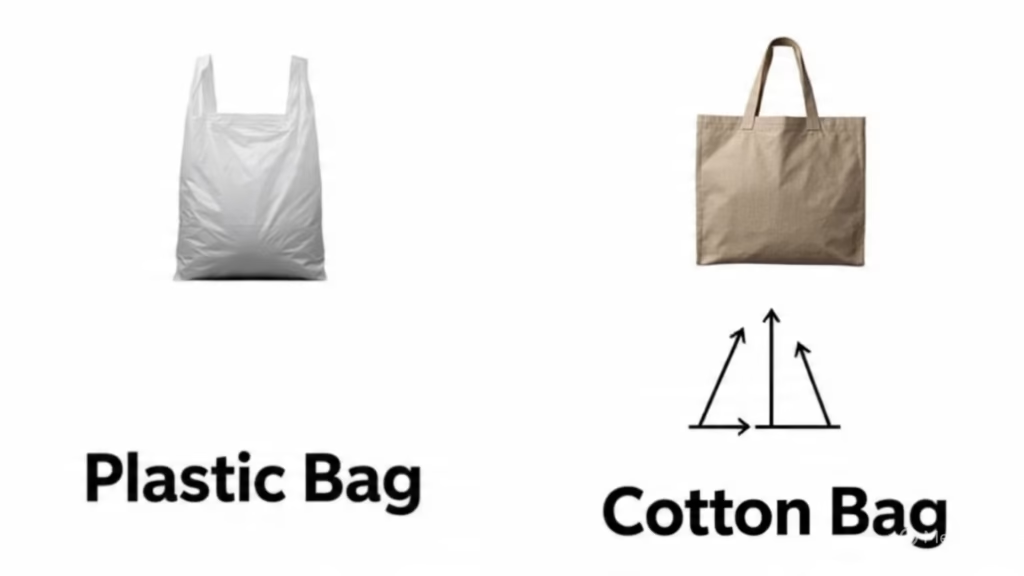
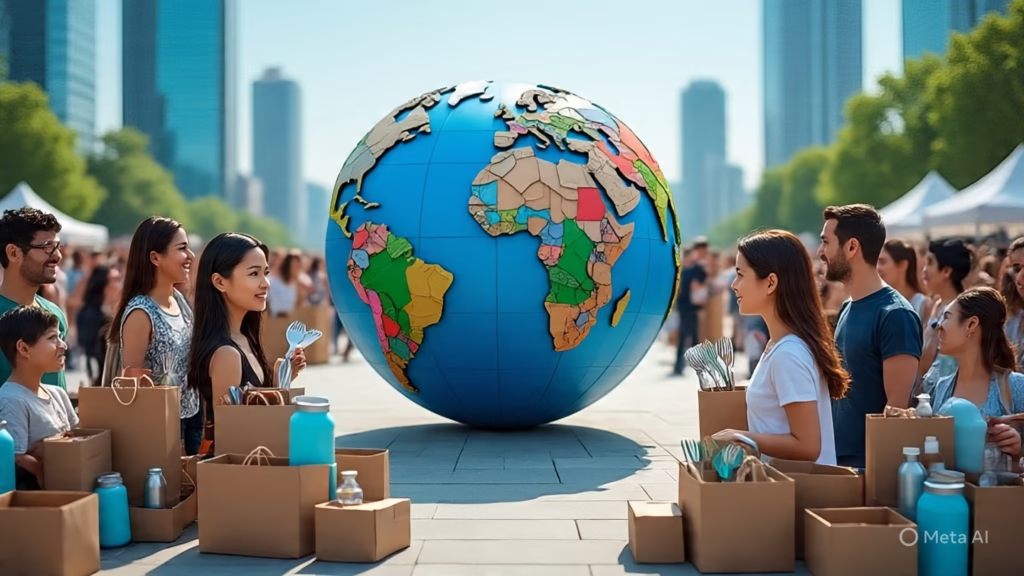
7. What are some examples of living “zero waste”?
✅ Using cloth bags, stainless steel water bottles, bamboo toothbrushes, compost bins, bulk shopping, and homemade cleaning products are all part of Zero Waste Benefits living.
8. How much money do reusable shopping bags save?
✅ A reusable bag replaces hundreds of plastic bags ( Zero Waste Benefits ). Depending on local bag fees, a family can save $50–$100 annually. They’re durable, so you save more over time.
9. How hard is it to go to zero waste? Is it impossible?
✅ It’s hard but not impossible. It depends on your location, habits, and mindset. Perfection isn’t the goal—progress is. Even small swaps like reusable bottles and bags matter.
10. Does opening a zero waste grocery store serve one’s nation?
✅ Yes, it promotes sustainable consumption, reduces plastic pollution, and raises environmental awareness. It can also support local farmers and eco-friendly supply chains.
11. Are green paper bags more eco-friendly than plastic bags?
✅ Paper bags decompose faster and are recyclable, but they require more water and energy to produce. Still, they’re better than plastic if reused and recycled properly.
12. What is the goal of the Zero Waste Challenge?
✅ It encourages people to reduce waste ( Zero Waste Benefits ) for a set period (like a week or month), helping them discover sustainable alternatives and learn about consumption habits.
13. What are the conflicts of a zero waste lifestyle with veganism?
✅ Vegan foods often come in plastic packaging, while unpackaged options may not be vegan. Also, some Zero Waste Benefits goods (like beeswax wraps) conflict with vegan ethics.
14. How can we promote zero waste living in India?
✅ Through awareness campaigns, school education, plastic bans, supporting refill/bulk stores, composting initiatives, and promoting traditional Indian practices like cloth wrapping.
15. Why are cotton bags more eco-friendly than plastic bags?
✅ Cotton is biodegradable and reusable, unlike plastic. While it takes more resources to produce, a cotton bag used 100+ times offsets its environmental footprint.
16. What are some zero-waste gift ideas?
✅ DIY scrubs, handmade soaps, beeswax wraps, potted plants, reusable straws, secondhand books, or experience-based gifts like tickets or coupons make perfect eco-friendly presents.
17. What is the best way to reduce urban waste?
✅ Encourage segregation at source, compost kitchen waste, implement strict recycling policies, reduce packaging, and invest in community education about Zero Waste Benefits living.
18. How to make a zero waste house?
✅ Set up home composting, use refillable containers, replace disposables with reusables (cloth towels, steel straws), reduce electricity use, and build a minimalist lifestyle.
19. Why is the zero waste philosophy important?
✅ It tackles pollution, conserves natural resources, slows climate change, and promotes responsible production and consumption. It’s essential for a sustainable future.
20. What is Zero Waste Movement?
✅ It’s a global initiative encouraging people, businesses, and governments to send as little trash as possible to landfills by redesigning products, processes, and habits.
21. What is zero waste?
✅ A lifestyle that aims to eliminate waste entirely by following a circular economy—products are reused, recycled, or composted instead of being thrown away.
22. What are the best practices for reducing household waste?
✅ Buy in bulk, compost food scraps, recycle properly, avoid single-use products, repurpose items, donate old clothes, and opt for digital over paper wherever possible.
23. Is zero waste city possible in India?
✅ Yes, with strong policies, citizen awareness, proper infrastructure, and segregation. Cities like Indore and Mysuru are moving in this direction through composting and waste reforms.
24. What are some green alternatives to the packaging industry?
✅ Mushroom-based packaging, banana leaves, palm leaf plates, jute sacks, bioplastics, recycled paper, and edible packaging are leading green options.
25. Why is Zero Waste Management important?
✅ It reduces landfill usage, lowers pollution, saves energy, conserves resources, and helps build a circular economy. It’s key for environmental and public health.
26. Why are we not using paper bags instead of plastic bags?
✅ Cost and durability are factors. Paper bags are weaker and costlier. Also, deforestation concerns arise unless recycled paper is used. But they’re still a better alternative.
27. How to utilise waste?
✅ Segregate it first. Compost organic matter, recycle paper and plastic, upcycle glass, and convert non-recyclables to energy where possible. Create DIY crafts from scraps.
28. Where did all the plastic grocery bags go?
✅ Many countries banned or restricted their use. Supermarkets shifted to reusable or biodegradable bags due to laws, environmental awareness, and consumer demand.
29. Are paper or plastic bags better for the environment?
✅ Paper bags are better if reused multiple times and recycled. Plastic bags consume less energy in production but cause more pollution and persist for hundreds of years.
30. How long should you keep a garbage bag in the house?
✅ Ideally, dispose of it every 2–3 days to avoid odor, bacteria, and pests. Compost daily waste separately if possible to reduce trash frequency.
31. What are the features of zero waste management?
Zero Waste Benefits,
✅ Source reduction, material recovery, composting, reuse, waste segregation, minimal landfill usage, and education on reducing consumption.
32. What is an eco-friendly alternative to trash bags?
Zero Waste Benefits,
✅ Compostable trash liners made from cornstarch, reusable washable bags, newspaper linings, or directly dumping waste into bins without a liner are sustainable options.
33. Why do we have to pay for plastic bags in supermarkets?
Zero Waste Benefits,
✅ To discourage usage and reduce plastic waste ( Zero Waste Benefits ). Charging a fee makes people bring their own bags, cutting down on plastic pollution and promoting sustainability.
34. What would happen if people do not stop using plastic bags?
Zero Waste Benefits,
✅ Oceans will face more plastic pollution, wildlife will suffer, drainage systems will clog, and microplastics will enter food chains—harming both nature and humans.
35. What is Zero-waste cooking?
Zero Waste Benefits,
✅ It means using every part of ingredients (e.g., peels for broth), storing food properly to prevent spoilage, repurposing leftovers, and composting food scraps.
36. What are the benefits of using plastic bags at grocery stores?
Zero Waste Benefits,
✅ They’re cheap, lightweight, and waterproof. However, the environmental cost outweighs the convenience—making alternatives necessary.

